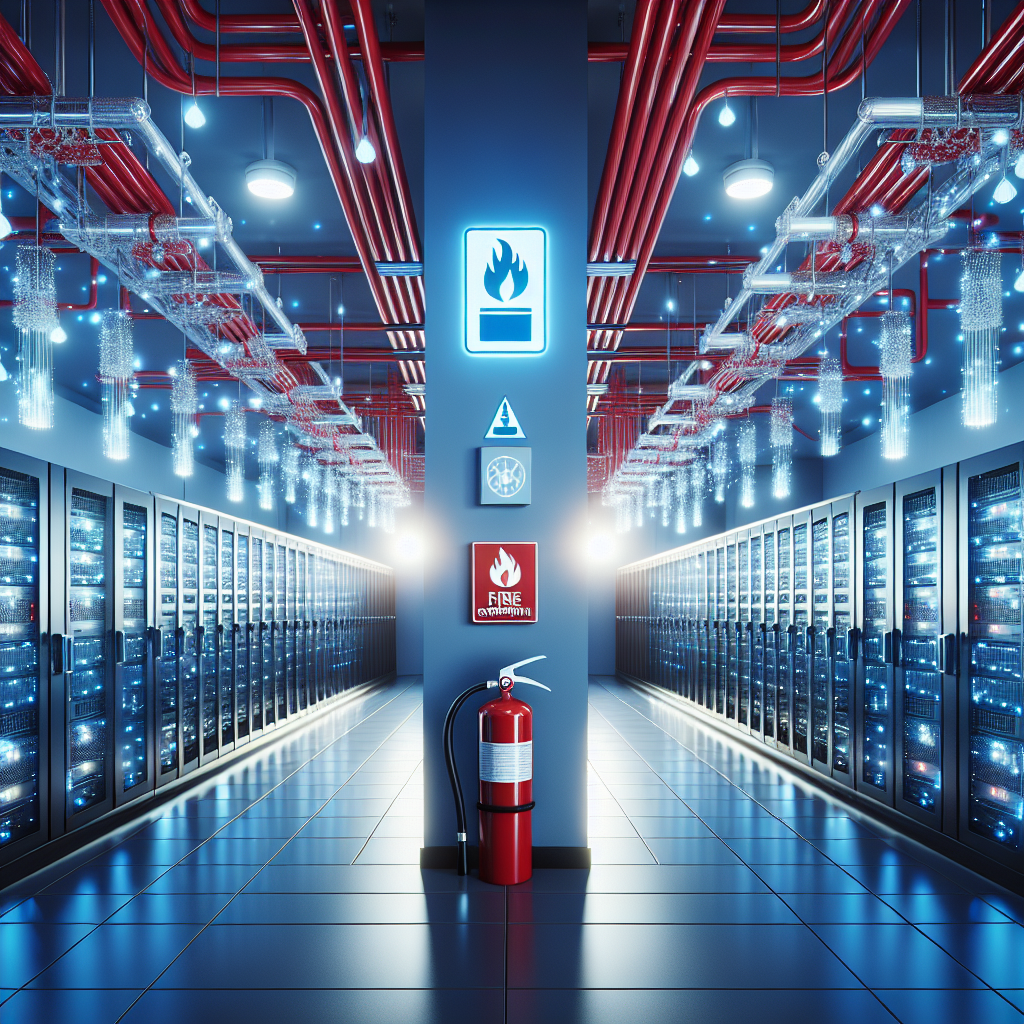Data centers are critical to the operations of many businesses, housing valuable equipment and data that are essential for daily operations. With the high-powered equipment and electrical systems present in data centers, the risk of fire is a constant concern. Implementing fire suppression systems in data centers is crucial to protect the equipment and data stored within them. However, it is essential to follow best practices to ensure that the fire suppression system is effective in the event of a fire.
One of the first steps in implementing a fire suppression system in a data center is to conduct a thorough risk assessment. This assessment should identify potential fire hazards, such as overheating equipment or electrical faults, and determine the best type of fire suppression system to address these risks. Common fire suppression systems used in data centers include sprinkler systems, clean agent systems, and gaseous suppression systems.
Once the appropriate fire suppression system has been selected, it is important to properly install and maintain the system. This includes ensuring that the system is installed according to manufacturer guidelines and industry standards, and that it is regularly inspected and tested to ensure it is functioning properly. Regular maintenance and testing of the fire suppression system can help to identify and address any issues before they become a problem.
In addition to installing and maintaining a fire suppression system, it is important to have a comprehensive fire prevention plan in place. This plan should include measures to reduce the risk of fire, such as regular equipment inspections, proper cable management, and the use of fire-resistant materials. Employees should also be trained in fire safety procedures and evacuation protocols to ensure they can quickly and safely respond in the event of a fire.
Another best practice for implementing fire suppression in data centers is to have a backup power supply in place. In the event of a fire, power may be lost, which can impact the effectiveness of the fire suppression system and hinder the ability to safely shut down critical equipment. Having a backup power supply, such as uninterruptible power supplies (UPS) or generators, can help to ensure that the fire suppression system remains operational and that critical equipment can be safely shut down.
In conclusion, implementing fire suppression in data centers is essential to protect valuable equipment and data from the risk of fire. By following best practices, such as conducting a risk assessment, properly installing and maintaining the fire suppression system, and having a comprehensive fire prevention plan in place, data center operators can help to mitigate the risk of fire and ensure the safety and security of their facilities.


Leave a Reply